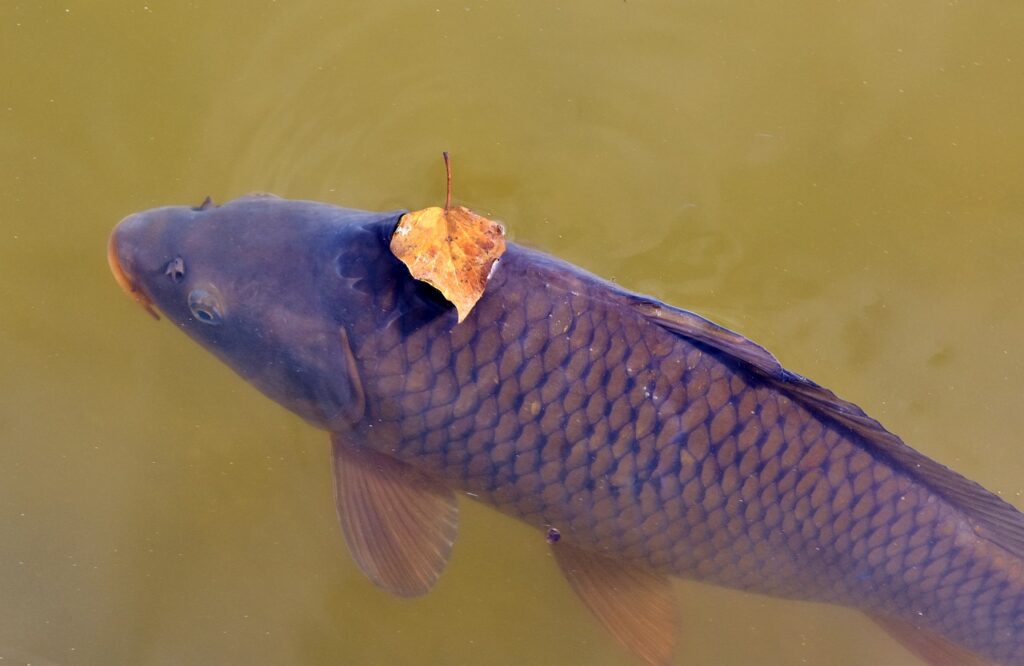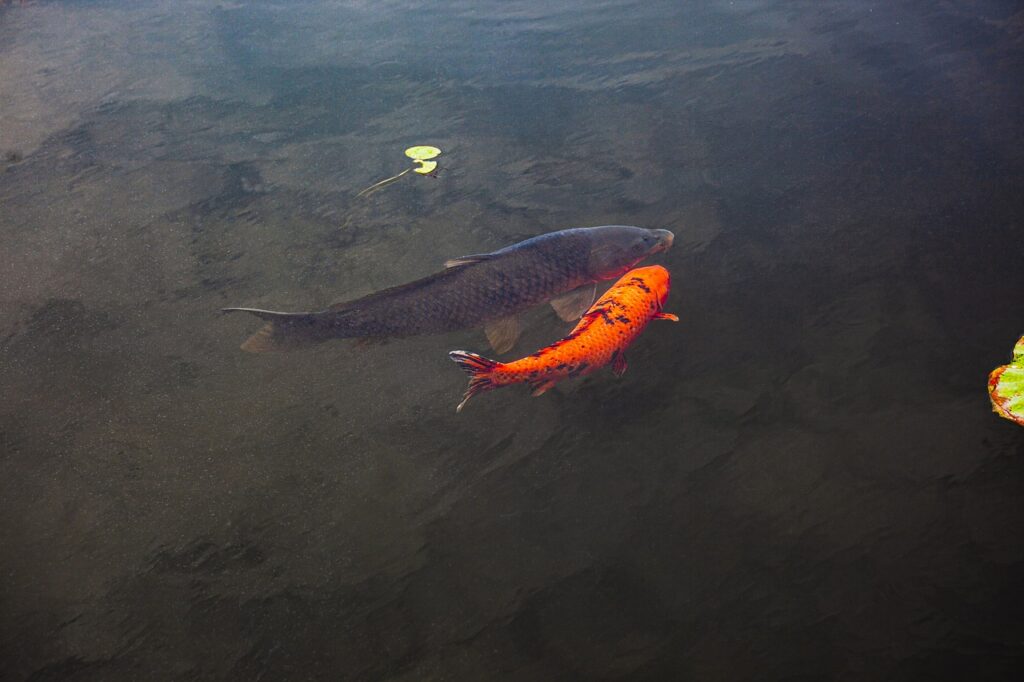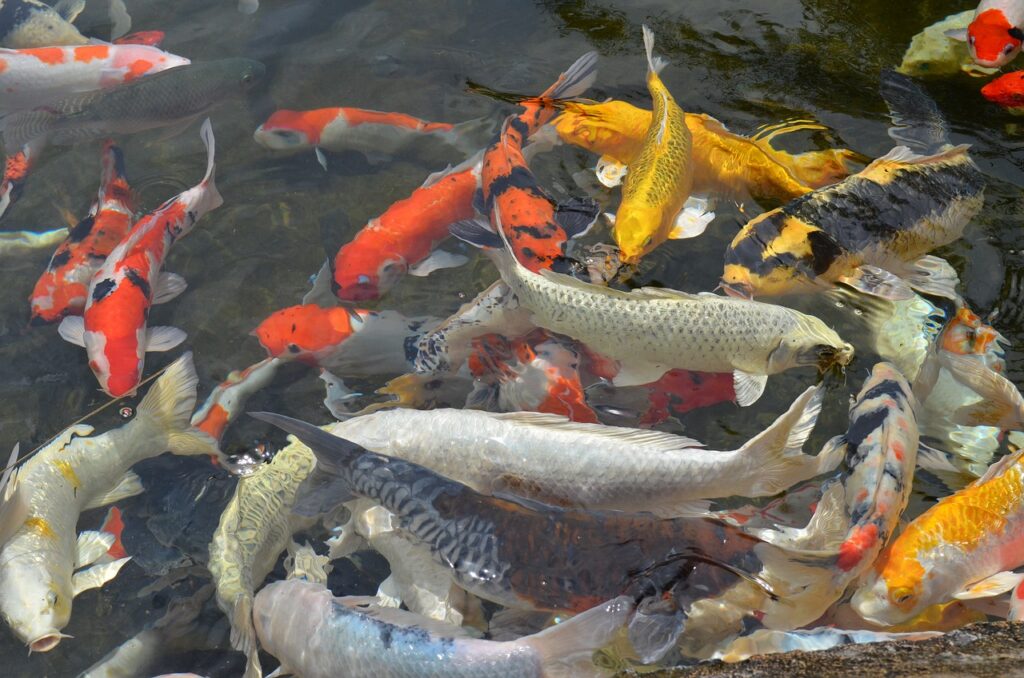Have you ever wondered about the lifespan of fish living in a pond? How long can fish live in a pond is a fascinating topic to explore, as these underwater dwellers are often overlooked but play a crucial role in maintaining the balance of their aquatic environment.
Understanding the factors that contribute to the longevity of fish in ponds can provide valuable insights into their care and conservation. From the availability of food and shelter to water quality and seasonal changes, various elements influence the lifespan of these remarkable creatures. Let’s dive into the captivating world of pond fish and unravel the secrets behind their survival.

Factors Affecting Fish Survival in a Pond
Water Quality
Water quality is crucial for the survival of fish in a pond. It is important to maintain the right pH level in the water, as some species have specific pH requirements. Additionally, the water should be free from pollutants such as chemicals and heavy metals. Regular monitoring and testing of the water quality is essential to ensure a healthy environment for the fish.
Temperature
Fish are ectothermic animals, meaning their body temperature is regulated by the temperature of their surroundings. Different fish species have different temperature preferences, and extreme fluctuations in temperature can be stressful and even fatal for fish. It is important to maintain a stable temperature in the pond, especially during hot summers and cold winters, to ensure the survival of the fish.
Oxygen Levels
Fish rely on dissolved oxygen in the water to breathe. Insufficient oxygen levels in the pond can lead to stress, reduced growth, and even death. Factors such as excessive plant growth, high water temperatures, and overstocking of fish can contribute to a decrease in oxygen levels. Adequate aeration and regular water circulation are necessary to maintain sufficient oxygen levels in the pond.
Predators
Predators can pose a significant threat to the survival of fish in a pond. Common predators include birds, mammals, and other predatory fish. It is important to implement measures to deter or control predators, such as installing netting or using decoys. Creating hiding places for fish, such as submerged vegetation or artificial structures, can also provide some protection against predators.
Food Availability
Sufficient food supply is essential for the well-being and survival of fish in a pond. Different fish species have different dietary requirements, so it is important to provide a balanced and appropriate diet. Overfeeding can lead to water pollution and health issues, while underfeeding can result in malnutrition and weakened immune systems. Regularly monitoring the fish’s feeding habits and adjusting the feeding regime accordingly is necessary to ensure optimal food availability.
Fish Species and Life Expectancy
Different Fish Species
There is a wide variety of fish species that can inhabit a pond. Some of the popular fish species found in ponds include koi, goldfish, bass, catfish, and rainbow trout. Each species has its own unique characteristics and requirements, so it is important to choose the right mix of fish species that can coexist harmoniously in a pond ecosystem.
Life Expectancy of Popular Pond Fish
The life expectancy of fish in a pond can vary greatly depending on the species. Koi, for example, can live for several decades, with some reaching up to 50 years old. Goldfish have an average lifespan of 10 to 20 years, while bass and catfish can live for around 10 to 12 years. Rainbow trout typically live for 5 to 7 years. It is important to consider the life expectancy of different fish species when planning and maintaining a pond.
Maintenance and Pond Care
Regular Water Testing
Regular water testing is crucial for maintaining a healthy pond environment. Testing the water parameters such as pH, ammonia levels, nitrate levels, and oxygen levels can help identify any issues that may arise. By monitoring these parameters and making necessary adjustments, such as adding proper treatments or making water changes, you can ensure the optimal conditions for fish survival.
Proper Feeding
Proper feeding is essential for the health and well-being of fish in a pond. It is important to feed the fish with high-quality food that meets their nutritional requirements. Overfeeding can lead to excess nutrients in the water, which can cause water quality issues and harm fish health. Feeding fish the appropriate amount and removing any uneaten food can help prevent these problems.
Proper Pond Balance
Maintaining a proper pond balance is crucial for the survival of fish. This involves managing the population of fish, plants, and other organisms to ensure a harmonious ecosystem. Overstocking of fish can lead to high competition for resources and increased stress, while excessive plant growth can deplete oxygen levels and disrupt the balance. Regular monitoring and necessary adjustments are important for maintaining a healthy pond balance.
Managing Algae and Weeds
Algae and weeds are common challenges in pond maintenance. While some amount of algae and weeds are natural and beneficial for the pond ecosystem, excessive growth can cause issues. Algae blooms can lead to oxygen depletion and water quality problems, while invasive weeds can outcompete other plants and disrupt the balance. Proper management techniques such as manual removal, biological controls, and the use of algaecides can help keep algae and weed growth in check.
Fish Diseases and Health Issues
Common Fish Diseases
Fish are susceptible to various diseases and health issues in a pond. Some common fish diseases include bacterial infections, fungal infections, parasitic infestations, and viral diseases. These diseases can be caused by improper water conditions, poor nutrition, stress, or the introduction of diseased fish. Regular observation and prompt treatment are essential to prevent the spread of diseases and ensure the overall health of the fish.
Symptoms and Treatments
The symptoms of fish diseases can vary depending on the specific disease, but some common signs to look out for include abnormal behavior, changes in appetite, visible lesions or discoloration, and respiratory distress. It is important to diagnose the disease accurately to provide the appropriate treatment. Treatment options can include the use of medications, water quality adjustments, and quarantining affected fish to prevent the spread of the disease.
Preventive Measures
Prevention is always better than cure when it comes to fish diseases. Implementing preventive measures can help reduce the risk of diseases in a pond. This includes maintaining good water quality, providing proper nutrition, avoiding stress-inducing factors, and quarantining new fish before introducing them into the pond. Regular observation and early action can make a significant difference in maintaining the health and well-being of the fish.

Pond Size and Depth
Impact on Fish Survival
The size and depth of a pond can have a significant impact on the survival of fish. Fish require adequate space to swim and thrive, especially if they are more active or territorial species. Insufficient pond size can lead to overcrowding, increased competition for resources, and stress among fish. Providing an appropriate pond size ensures a healthier environment and better chances of survival for the fish.
Adequate Space for Fish
Different fish species have different space requirements, so it is important to consider this when planning a pond. Some species require significantly larger areas to swim and explore, while others can thrive in smaller spaces. Researching the specific space requirements of the chosen fish species can help determine the appropriate pond size for optimal fish survival.
Ideal Pond Depth
The depth of a pond is another important factor for fish survival. A deeper pond can help provide a more stable water temperature and protect fish from extreme weather conditions. It also offers a greater volume of water, which can help dilute any accumulated pollutants and maintain better water quality. Providing a suitable depth for the fish species in the pond ensures their comfort and longevity.
Seasonal Variations and Fish Survival
Winter Survival Strategies
Winter can be a challenging time for fish survival in a pond, especially in regions with cold climates. Fish have various strategies to survive the winter, such as hibernation or seeking deeper areas where the water is relatively warmer. It is important to ensure that the pond does not freeze completely, as trapped gases and reduced oxygen levels can harm the fish. Measures such as installing a pond heater or providing an aerator can help maintain a suitable environment for fish during winter.
Summer Challenges and Solutions
Summer can also pose challenges for fish survival, especially in areas with high temperatures. Rising water temperatures can decrease dissolved oxygen levels, making it harder for fish to breathe. Additionally, excessive sunlight can lead to algal blooms and oxygen depletion. To combat these challenges, it is important to provide adequate shade, manage algae growth, and ensure proper aeration and water circulation in the pond.

Breeding and Reproduction
Fish Reproduction Cycle
The reproductive cycle of fish varies among different species, but it generally involves a series of stages such as courtship, egg laying, fertilization, and hatching. Providing suitable spawning areas, such as submerged vegetation or spawning mats, can encourage natural reproduction. Some fish may require specific temperature or water conditions to trigger the breeding behavior, so it is important to research the specific requirements of the chosen fish species.
Challenges in Pond Breeding
Breeding fish in a pond can present its own set of challenges. Predation on eggs or fry by other fish or predators can significantly impact the success of breeding. Adequate hiding places or separate breeding tanks can help protect the eggs and fry from being consumed. Monitoring water quality and providing appropriate nutrition for breeding fish are also essential for their reproductive success.
Protecting Fry and Juvenile Fish
Fry and juvenile fish are particularly vulnerable to predation and environmental changes. Providing sufficient hiding places, such as submerged vegetation or artificial structures, can help protect them from predators. Monitoring their growth and ensuring proper nutrition are crucial for their development and survival. Separating them from adult fish until they reach a suitable size can also increase their chances of survival.
Human Interference and Pond Limitations
Overstocking
Overstocking the pond with too many fish can lead to overcrowding and increased competition for resources, which can result in stress and poor fish health. It is important to consider the size and capacity of the pond when stocking fish, as well as the specific space requirements of the chosen species. Maintaining an appropriate fish population density ensures a healthier and more sustainable pond ecosystem.
Overfeeding
Overfeeding fish can have detrimental effects on water quality and fish health. Excess food can lead to increased nutrient levels in the water, which can cause algal blooms, oxygen depletion, and poor water conditions. It is important to provide the fish with the appropriate amount of food based on their dietary needs and to remove any uneaten food. Regular monitoring and adjusting the feeding regime can prevent overfeeding and its associated issues.
Pollution and Chemicals
Pollution and the use of chemicals can have harmful effects on fish and the pond ecosystem. Chemical pollutants from runoff or nearby sources can contaminate the water and negatively impact fish health. Similarly, the use of chemicals such as pesticides or herbicides without proper precautions can harm fish and disrupt the balance of the pond. It is important to avoid introducing pollutants and to use environmentally-friendly alternatives when necessary.
Damages from Fishing Activities
Fishing activities can unintentionally cause damages to the pond and its inhabitants. Improper fishing techniques or using inappropriate fishing gear can injure or stress the fish. It is important to educate and practice responsible fishing methods, such as using barbless hooks and handling the fish with care. Following fishing regulations and respecting catch limits can help preserve the fish population and maintain a sustainable pond ecosystem.
Fish Stress Factors
Physiological Stress
Fish can experience physiological stress due to various factors, such as poor water quality, temperature fluctuations, overstocking, or inadequate nutrition. Physiological stress can weaken the immune system of fish, making them more susceptible to diseases and health issues. Maintaining optimal water conditions, providing suitable space, and offering a balanced diet are crucial for reducing physiological stress and ensuring the well-being of the fish.
Environmental Stress
Environmental stress can result from factors such as extreme temperatures, poor water quality, lack of oxygen, or exposure to pollutants. These stressors can lead to behavioral changes, reduced growth, and increased vulnerability to diseases. It is important to identify and mitigate environmental stressors through regular monitoring, necessary adjustments, and proactive measures to create a more favorable and less stressful environment for the fish.
Handling Stress
Improper handling can cause stress and physical harm to fish, especially during activities such as catching, transferring, or transporting them. Fish should be handled gently and with care, avoiding excessive squeezing or dropping. Using appropriate equipment and techniques can minimize handling stress and ensure the well-being of the fish. It is important to handle fish as little as possible and to return them to the water quickly after handling to reduce stress.
Signs of Fish Mortality
Behavioral Changes
Behavioral changes can be an indication of fish mortality. If fish display abnormal behavior such as lethargy, loss of appetite, increased aggression, or gasping at the water surface, it may be a sign that they are experiencing health issues or stress. Observing changes in fish behavior can help identify potential problems and allow for timely intervention and treatment.
Physical Symptoms
Physical symptoms can also indicate fish mortality. Common physical symptoms include visible lesions, discoloration, frayed fins, cloudy eyes, or abnormal growths. These symptoms can be caused by diseases, poor water quality, or injuries. Regular observation of the fish and routine physical examinations can help detect any physical symptoms and allow for prompt treatment or intervention.
Postmortem Examination
In cases of fish mortality, conducting a postmortem examination can help determine the cause of death. This involves carefully examining the dead fish for any visible signs of diseases, injuries, or abnormalities. The examination can provide valuable information about the overall health of the fish population and aid in implementing necessary measures to prevent further mortality.
How Long Can Fish Live In A Pond
In conclusion, several factors influence the survival of fish in a pond. Maintaining good water quality, appropriate temperature and oxygen levels, managing predators and food availability, and providing proper care and maintenance are essential.
Understanding the specific needs and characteristics of different fish species, managing their reproduction, and limiting human interference help create a healthy and sustainable pond ecosystem. Recognizing signs of stress or mortality and taking appropriate action can contribute to the well-being and longevity of fish in a pond.
This should cover everything you need to know about how long can fish live in a pond. Its also worthwhile taking a look at ‘Can Fish Survive Winter In A Pond‘.
